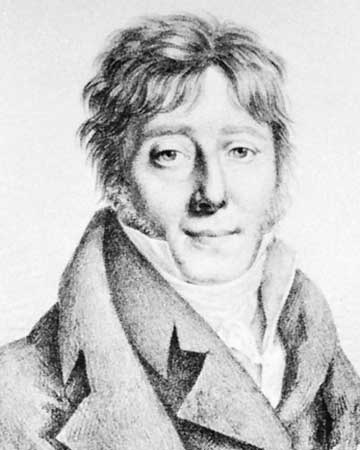Lesueur, Jean-François
French composer
Lesueur also spelled Le Sueur
born Feb. 15, 1760, Drucat-Plessiel, near Abbeville, France
died Oct. 6, 1837, Paris
 composer of religious and dramatic works who helped to transform French musical taste during the Revolution.
composer of religious and dramatic works who helped to transform French musical taste during the Revolution.In 1781 Lesueur was appointed chapelmaster at the cathedral of Dijon and in 1786 at Notre-Dame in Paris. There he aroused controversy by introducing a large orchestra to accompany his masses, which, he maintained, should make a dramatic appeal. Though Lesueur's masses, admired by opera goers, caused Notre-Dame to be described as L'Opéra des gueux (“The Beggars' Opera”), he succeeded in blending the sacred and secular styles, thus anticipating the religious works of Hector Berlioz (Berlioz, Hector) and Charles Gounod (Gounod, Charles), and also the Requiem of Verdi. In his Christmas oratorio he transformed themes in a manner suggesting Wagner's use of leitmotiv. After 1789 he wrote several odes and chants for performance at the open-air celebrations of the Revolution by vast numbers of choristers and instrumentalists. Between 1793 and 1796 he wrote his operas La Caverne, Paul et Virginie, and Télémaque. He was inspector of the Paris Conservatoire from 1795 to 1802 and in 1804 was made director of music to Napoleon I, to whom he dedicated his opera Ossian ou les bardes. He was later director of music to Louis XVIII and in 1818 professor of composition at the Conservatoire, where his pupils included Berlioz, Gounod, and Ambroise Thomas.